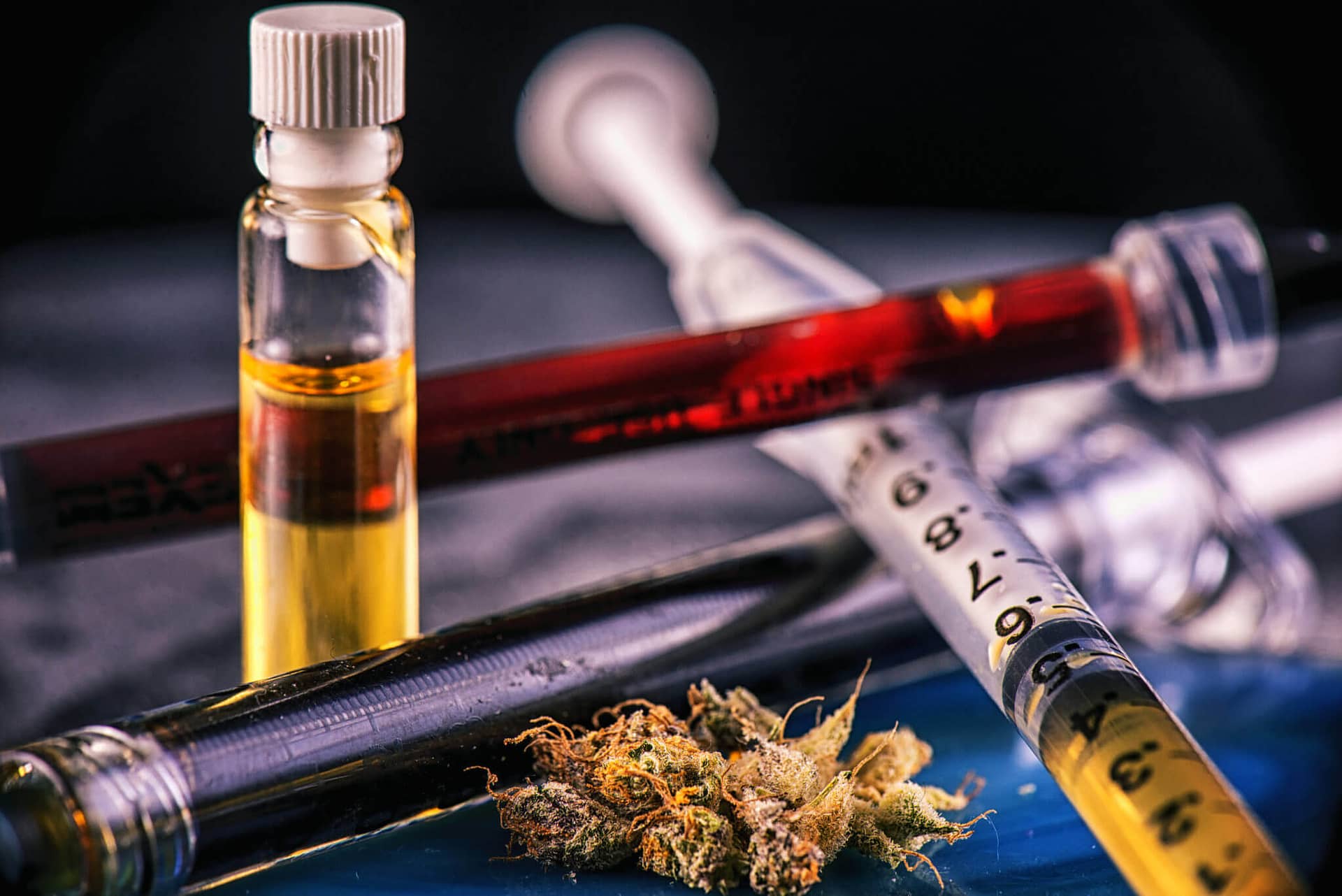Cannabinoids

 Cannabidiol (CBD)
Cannabidiol (CBD)
Kanabidiol is one of the two most important cannabinoids discovered in cannabis plants. It occurs in varying proportions in different strains and its level can be controlled along with scientific progress in the field of cannabis plant genetics.
Currently, more and more extensive research on CBD with a varied level of evidence quality is being conducted.
Cannabidiol has no psychoactive properties, and as an antagonist of the CB1 and CB2 cannabinoid receptors it eliminates the psychoactive effect of THC.
Research suggests that cannabidiol can be effective in the treatment of chronic and neuropathic pain. It also appears that CBD has anti-inflammatory properties, reducing pain associated with inflammation.
At the same time, CBD may also be an immuno-modulator and an antioxidant.
Cannabidiol is known to have anticonvulsant properties, supporting the treatment of epilepsy. Patients indicate a decrease in the frequency and severity of epileptic seizures and indicate improvement in well-being, sleep quality and concentration.
Many users, including cancer patients undergoing chemotherapy, confirm that CBD has helped them fight nausea and vomiting. Studies conducted by the Complutense University of Madrid have shown the death of cancer cells under the influence of cannabinoids. Patients show an improvement in well-being, a sense of elimination of chronic fatigue and a reduction of pain.
Cannabidiol proves to be helpful in treating disorders associated with the autism spectrum. A study by Stanford University Medical School in 2013 showed that neuroglin-3, a protein that is mutated in some cases of autism, helps in the transmission of signals between neurons and the endocannabinoid system.
CBD is currently used as a neuroprotective component in treating the symptoms of neurodegenerative diseases such as Alzheimer’s and Parkinson’s. Cannabidiol relieves stress, anxiety and inflammation, reduces oxygen accumulation and stimulates the brain.
Despite the lack of scientific evidence confirming their words, patients suffering from chronic inflammatory bowel diseases, such as Crohn’s disease and ulcerative colitis exchange the benefits of using CBD. Their influence on the stabilization of homeostasis in the large intestine allows them to maintain the balance of the digestive system in terms of electrolytes, bacteria and the level of absorption and release of fluids.
Patients suffering from multiple sclerosis confirm the effectiveness of CBD in relieving stiffness and muscle spasticity, alleviating pain associated with the disease. Scientific research at the University of Tel Aviv seems to confirm this at a time when CBD has helped paralyzed mice recover their ability to walk, reducing the amount of nerve cell damage and inflammation, especially in the brain and spine.
CBD is increasingly used as a support in treating addictions, reducing the need for heroin, cocaine and alcohol. Cannabidiol is also considered as antipsychotic, helping people suffering from anxiety and anxiety.
Basing on its therapeutic values, CBD is already recommended in some countries as a beneficial dietary supplement. People using CBD confirm that it helps them reduce stress and negative cognitive symptoms such as forgetting or distracting.
Specialists advise that the CBD dosage should start from about 2-3 mg taken every 6 hours. Long-term therapy is associated with the need to maintain a constant level of CBD in the body, remembering that the molecule decomposes after 6 hours. The dose of 2-3 mg, however, is very indicative and depends to a large extent on the concentration of the product containing CBD, the content of other cannabinoids, age, weight and other body characteristics of the patient, as well as on the disease the patient is struggling with.




